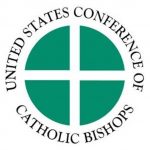Forming Consciences for Faithful Citizenship: The Common Good

In their statement on Forming Consciences for Faithful Citizenship, the Catholic bishops of the United States identify the four main principles of the Church’s social teaching and apply them to some concrete issues. This is not to tell the faithful for whom or against whom to vote, but instead to help them form their consciences in accordance with God’s truth as they approach this often-challenging decision. The four main principles are the Dignity of the Human Person, the Common Good, Solidarity, and Subsidiarity. They are all interrelated. This bulletin focuses on the Common Good, and the other three principles are covered in three other bulletins in this series.
The Common Good is “the sum total of social conditions which allow people, either as groups or as individuals, to reach their fulfillment more fully and more easily.”1 Human dignity is respected and the common good is fostered only if human rights are protected and basic responsibilities are met. Every human being has a right to life, a right to religious freedom, and a right to have access to those things required for human decency.
Corresponding to these rights are duties and responsibilities—to ourselves, to our families, to the larger society, and to the earth.2 In short, we should seek “to build that kind of society where it is easier for people to be good.”3
In the midst of a “throwaway world” in which some members of the human family “can be readily sacrificed for the sake of others considered worthy of a carefree existence,” Pope Francis urges us to build a “culture of encounter” in which those most in need receive our greatest concern and attention. We must “place at the center of all political, social and economic activity the human person, who enjoys the highest dignity, and respect for the common good.”4
“In short, we should seek ‘to build that kind of society where it is easier for people to be good.’”
As we seek to imitate the Good Samaritan, who was neighbor to all, we pursue the Common Good in order that every individual and all people can flourish.5
- Marriage and the family are the central institutions of social life – the primary school of virtue, where we first experience common rather than merely individual goods – and so these institutions should be supported and strengthened.
- Likewise, as one human family dwelling in our common home, we must hear “both the cry of the earth and the cry of the poor” and respond to climate change with actions to better protect creation for our brothers and sisters now and in generations to come.6
- Accepting the entire world as a gift from the Father, and as our common home includes accepting our bodies as God’s gift, whereas thinking that we enjoy absolute power over our own bodies turns, often subtly, into thinking that we enjoy absolute power over creation.7
- We recognize and protect the right to religious liberty, our first and most cherished freedom. The protection of conscience and religious liberty is an indispensable element of the common good – a fundamental human right that knows no geographical boundaries.8
- While the common good embraces all, those who are weak, vulnerable, and most in need deserve special concern, which the Church describes as the preferential option for the poor.9 Laws and policies must prioritize those who struggle to make ends meet and must preserve the social safety net and promote decent jobs, affordable housing, and childcare.
Pope Benedict XVI writes in Caritas in Veritate (Charity in Truth): “To desire the common good and strive towards it is a requirement of justice and charity.” We must be attentive to the common good “juridically, civilly, politically and culturally” in the life of society. “The more we strive to secure a common good corresponding to the real needs of our neighbors,” he writes, “the more effectively we love them.”10
![]() To download and print a PDF of this article, CLICK HERE.
To download and print a PDF of this article, CLICK HERE.
![]() To download and print a PDF of the entire USCCB “Forming Consciences for a Faithful Citizenship” document, CLICK HERE.
To download and print a PDF of the entire USCCB “Forming Consciences for a Faithful Citizenship” document, CLICK HERE.
This bulletin insert along with five others was approved by the body of U.S. bishops in November 2023. Find this and more complementary resources at
www.faithfulcitizenship.org.
Quotes from Papal and Vatican sources copyright © Libreria Editrice Vaticana (LEV), Vatican City. All rights reserved.
Copyright © 2023, United States Conference of Catholic Bishops, Washington DC.
All rights reserved.

1 Catechism of the Catholic Church, no. 1906, citing Gaudium et Spes (The Church in the Modern World), no. 26.
2 United States Conference of Catholic Bishops, Forming Consciences for Faithful Citizenship, nos. 49, 51.
3 Peter Maurin, as quoted by Dorothy Day. See All the Way to Heaven: The Selected Letters of Dorothy Day (New York: Random House, 2010), 457.
4 Pope Francis, Fratelli Tutti (On Fraternity and Social Friendship), nos. 18 and 232.
5 Pope Francis, Fratelli Tutti (On Fraternity and Social Friendship), no. 66.
6 Pope Francis, Laudato Si’ (On Care for Our Common Home), no. 49. See also: Pope Benedict XVI, Caritas in Veritate (Charity in Truth), nos. 48-52, and Pope Francis, Laudate Deum, nos. 58 and 60.
7 Pope Francis, Laudato Si’ (On Care for Our Common Home), no. 155.
8 St. Pope Paul VI, Dignitatis Humanae (Declaration on Religious Freedom), no. 6; Catechism of the Catholic Church, no. 1907, citing Gaudium et Spes (The Church in the Modern World), no. 26.
9 United States Conference of Catholic Bishops, Forming Consciences for Faithful Citizenship, no 53.
10 Pope Benedict XVI, Caritas in Veritate, no. 7.


Comments are closed here.